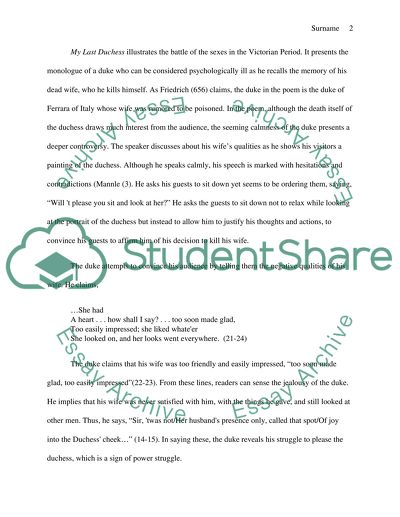Cite this document
(“Power Struggle in the Victorian Era as Reflected in My Last Duchess Essay”, n.d.)
Power Struggle in the Victorian Era as Reflected in My Last Duchess Essay. Retrieved from https://studentshare.org/philosophy/1436466-poetry
Power Struggle in the Victorian Era as Reflected in My Last Duchess Essay. Retrieved from https://studentshare.org/philosophy/1436466-poetry
(Power Struggle in the Victorian Era As Reflected in My Last Duchess Essay)
Power Struggle in the Victorian Era As Reflected in My Last Duchess Essay. https://studentshare.org/philosophy/1436466-poetry.
Power Struggle in the Victorian Era As Reflected in My Last Duchess Essay. https://studentshare.org/philosophy/1436466-poetry.
“Power Struggle in the Victorian Era As Reflected in My Last Duchess Essay”, n.d. https://studentshare.org/philosophy/1436466-poetry.


